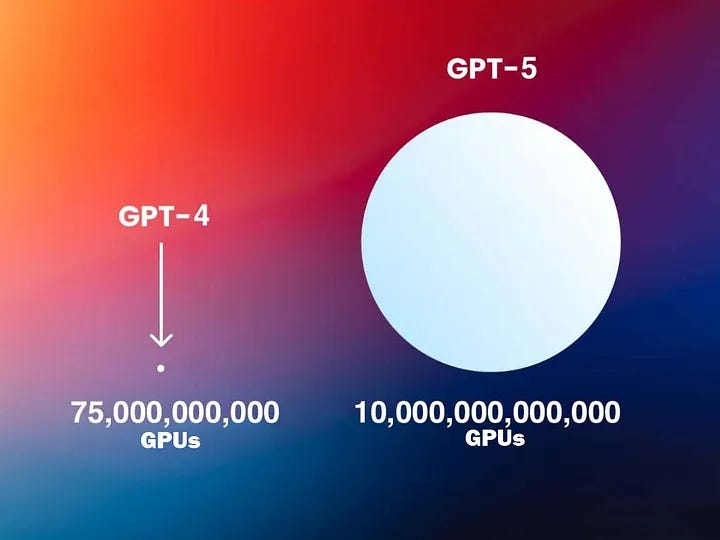OpenAI’s recent move to provide free, unlimited access to GPT-5 for all ChatGPT users is a big shift in artificial intelligence accessibility. This decision reshapes not only how people interact with AI but also challenges existing models of AI monetization, pushing the industry toward a future where powerful AI tools are no longer a premium feature but a fundamental resource for everyone.
Historically, companies offering AI services have drawn sharp lines between free and paid users, reserving the most capable versions of their models for those willing to pay. OpenAI’s decision effectively dismantles that structure, placing cutting-edge AI into the hands of students, entrepreneurs, and everyday users without the constraints of subscription tiers. The implications of this are profound.
A Turning Point for AI and Everyday Users
For many, artificial intelligence has been an occasional tool—something used here and there for drafting emails, summarizing articles, or brainstorming ideas. The introduction of unlimited GPT-5 access has the potential to transform AI from a handy assistant into something akin to a digital co-pilot that is deeply embedded in daily workflows.
How GPT-5 Changes the Game
Writing and Content Creation: The ability to generate highly refined content without paywalls means independent writers, students, and content creators now have an AI-powered tool that helps draft, edit, and improve their work with no limitations.
Learning and Research: Students can summarize complex academic papers, get instant tutoring, and translate materials effortlessly. The integration of AI into self-directed learning is about to accelerate at an unprecedented pace.
Business and Productivity: Small business owners and freelancers, who previously may have hesitated to invest in AI subscriptions, can now use GPT-5 to automate tasks, generate reports, and enhance customer interactions.
Software Development and Problem-Solving: Aspiring programmers can learn coding, debug issues, and get real-time AI-generated explanations, making technical education and software development more accessible.
This change also forces other companies, like Google and Microsoft, to reconsider their AI pricing models. If OpenAI is willing to make its most powerful model available for free, how long can competitors justify charging for access?
What Makes GPT-5 Revolutionary?
GPT Training Difference Noted Above
GPT-5 is more than just a slightly improved version of its predecessor. It represents a fundamental leap in AI’s ability to reason, remember context, and personalize responses. While the technical specifications remain largely under wraps, we can infer a few key advancements:
More Context Retention: One of the biggest limitations of past AI models has been short-term memory. GPT-5 is expected to track longer conversations with greater accuracy, eliminating frustrating moments where AI "forgets" what was just discussed.
Greater Autonomy: Instead of just answering queries, AI agents powered by GPT-5 could handle complex workflows, from scheduling and research to making autonomous decisions within defined parameters.
Improved Multimodal Capabilities: As AI systems expand beyond text, GPT-5 will likely integrate more seamlessly with image, voice, and video-based inputs, making human-computer interactions feel more natural.
If OpenAI is opening this level of intelligence to free users, the landscape of how humans interact with technology is about to shift dramatically.
Potential Risks and Ethical Considerations
Whenever AI takes a significant step forward, ethical and social concerns follow. The widespread availability of GPT-5 raises several pressing issues:
AI Dependency: With free access to an advanced model, will users become too reliant on AI for thinking, creativity, and problem-solving? The balance between augmentation and over-reliance remains a significant debate.
Job Displacement: GPT-5’s capabilities could automate large portions of work traditionally done by writers, customer service representatives, and even some white-collar professionals. How industries adapt to this remains a critical question.
Misinformation and Manipulation: The easier it becomes to generate highly convincing AI-generated content, the harder it will be to combat misinformation, deepfakes, and AI-generated scams.
Data Privacy and Surveillance: With more people interacting with AI at deeper levels, questions about how user data is stored, analyzed, and monetized become even more relevant.
As AI grows more capable, the burden of ethical responsibility shifts from the technology itself to those who deploy and regulate it. OpenAI may be leading in accessibility, but policymakers, businesses, and individuals will need to consider how to implement safeguards without stifling innovation.
Final Thoughts: The Democratization of AI
For years, AI advancements have been accessible primarily to those who could afford them. With OpenAI removing financial barriers to its most powerful model, the potential for innovation, creativity, and efficiency skyrockets.
This decision doesn't just benefit individuals looking for a smarter chatbot, it shifts how AI is perceived and used across the globe. AI is no longer a luxury for businesses and tech enthusiasts. It is now a universal tool that is poised to become as essential as the internet itself.
How we use it ethically, productively, and responsibly will define the future.






